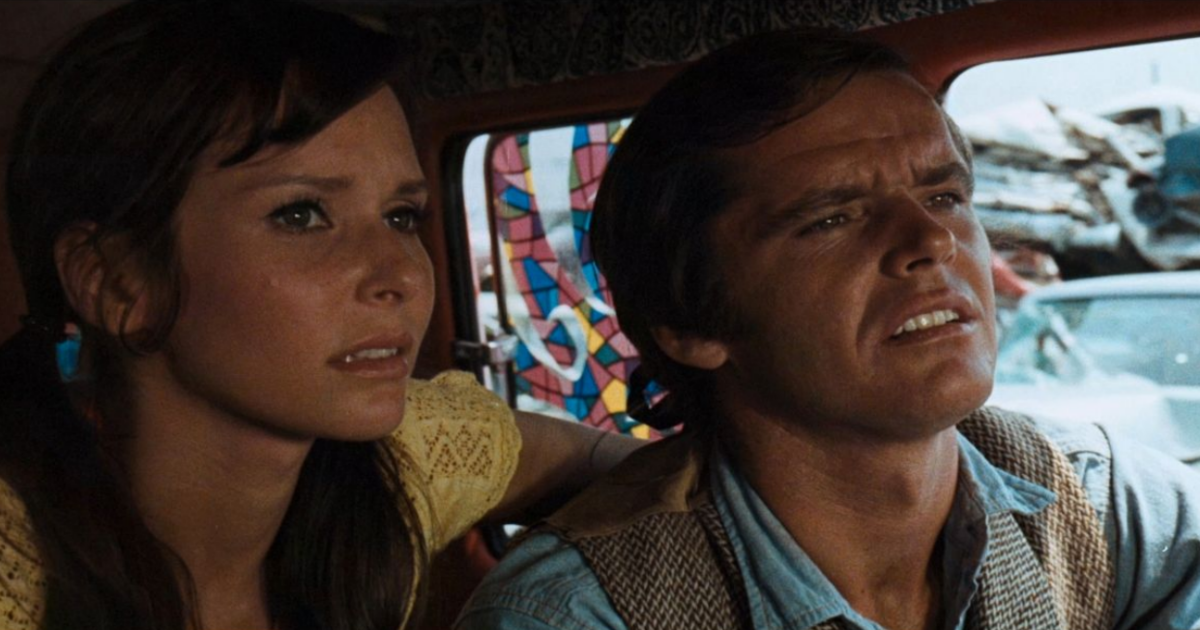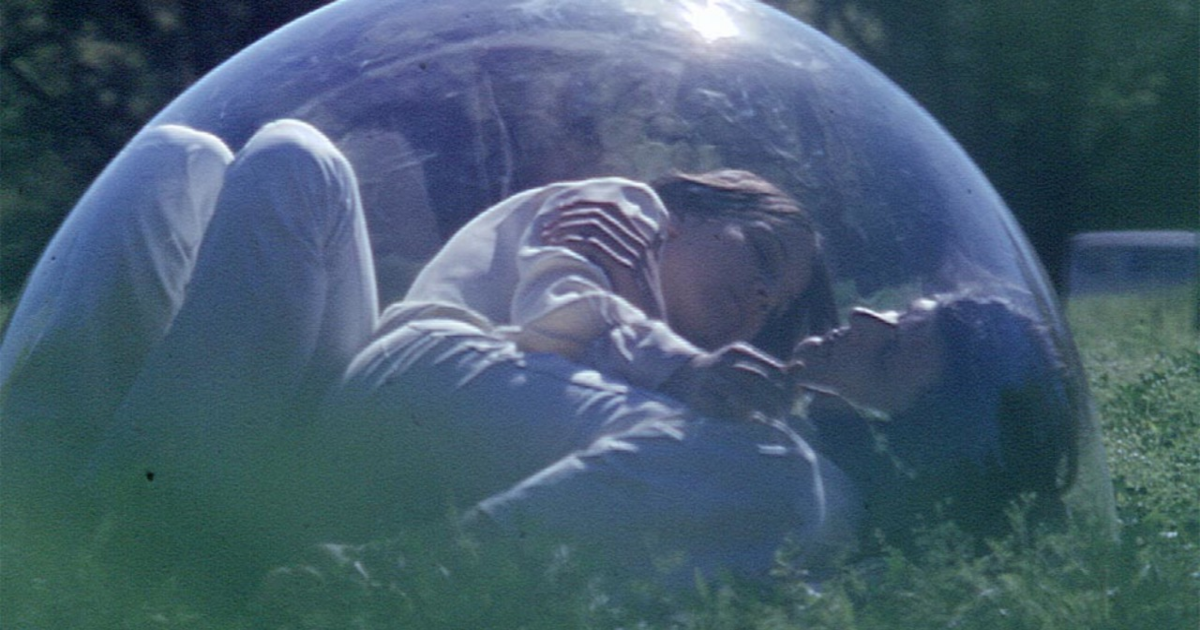In 1969, one of the earliest movies about the then-prominent hippie subculture, Alice’s Restaurant, was released. The film, directed and written by Arthur Penn and Venable Herndon, was a response to new American challenges such as the Vietnam War draft and several other anxiety-inducing events of the 1950s. The film carried a similar message to the movement as a whole: a critique of western society and its contemporary practices, aiming to change the American mindset to one of peace and love. The hippie movement rebelled against these ideological and political systems in a show of wild drug use and sexual liberalism, two subjects that are visited in most movies that touch on this era.
In a University Press of Mississippi interview, Arthur Penn says that Alice’s Restaurant was a response to “the US’ silence” and a depiction of “the new generation that’s trying to save everything." Like the movement itself, movies about hippie subculture look at multiple perspectives like these, but mostly focus on pushing the boundaries of established society and feature youth "trying to save" a broken world.
Although the movement winded down in the 1970s, hippie culture continued to appear in motion pictures because of its permanent impression on society. Up until today, there have been a variety of interpretations of hippie subculture (both positive and critical) coming out of Hollywood. Flicks of that era, like Alice’s Restaurant, fixated on the mindset of that time, while more recent films like The Big Lebowski and Across the Universe studied the aftermath. Here are the best movies about hippie subculture, ranked.
9 Across the Universe
Directed by Julie Taymor and inspired several songs by The Beatles, Across the Universe follows the lives of four young characters in the 1960s who are impacted by the decade's political movements. The story deals with radical political protests, sexuality, the civil rights movement, and the Vietnam War. Lucy, played by Evan Rachel Wood, becomes particularly involved in the anti-war movement and verges on obsessive. She comes to her senses, however, when she discovers her leader is crafting bombs. The movie also looks at addiction following experimental drugs in the 1960s.
8 Wonderwall
This British psychedelic film came out in 1968 and completely taps into the feelings of the time. Directed by Joe Massot, the underrated Wonderwall really digs into the experimental drug use and liberal sexuality of the 1960s. Basically, the movie follows a man who spies on his neighbors’ photoshoots through a hole in the wall between their apartments, but as an experimental film, Wonderwall lacks any real story and should be taken more as a visual experience. According to Budd Wilkins of Slant, the film should be viewed for its “eye-popping set designs and spaced out world music ambiance,” composed by the Beatle, George Harrison.
7 Psych-Out
Psych-Out was another psychedelic film released in 1968, with an excellent cast including Jack Nicholson, Susan Strasberg, Dean Stockwell, and Bruce Dern. In summary, a deaf girl runs away to San Francisco to search for her missing brother and falls into the Haight-Ashbury hippie district. The film’s producer, Dick Clark, said in his memoir Rock, Roll, and Remember, that he wanted the motion picture to be an anti-drug piece because he had seen young people in hippie communes living in “awful squalor.” Like many films in this list, it was an account of the boundaries being broken by the hippie movement.
6 Easy Rider
This anti-establishment film was written by Peter Fonda, Dennis Hopper, and Terry Southern. Fonda and Hopper star in Easy Rider as two bikers traveling on an epic road trip across America. They encounter many of the themes explored in other 60s films, really zeroing in on disgruntled youth, drugs, and communes, along with the sense of hopelessness regarding the future which compelled so many hippies to pursue both political action and indulgent hedonism. Easy Rider is known for including actual drug use and featuring arguably the first great Jack Nicholson performance; it also has one of the most haunting and best final shots in movie history.
5 Helter Skelter
Made-for-TV and based on the 1974 book, Helter Skelter looks at the murders committed by the Manson family. Charles Manson adopted the term “helter-skelter” from the Beatles song of the same name. Although Manson had a criminal history, he was partly influenced by the anti-establishment and hippie movements of the decade; his cult and similar ones were often tied up with hippie subculture (and its emphasis on drugs, illegal acts, and communal living), something perfectly depicted in Once Upon a Time in Hollywood.
4 Once Upon a Time in Hollywood
Partly based around the same events as Helter Skelter, this Quentin Tarantino movie follows a famous actor and his stunt double navigating Hollywood in the late 1960s. Starring Leonardo Decaprio, Brad Pitt, and Margot Robbie, Tarantino wrote Once Upon a Time in Hollywood and decided his two main characters should be neighbors to Sharon Tate. While the movie mostly focuses on the dying popularity of Westerns and old Hollywood, the scenes on the Spahn Ranch, home of the Mansons, really digs into the activities of the time, and the explosive, simultaneously violent and comic ending is a revisionist (and somewhat conservative) take on the Manson crimes and hippie subculture in general.
3 Eggshells
Directed by Tobe Hooper, a man known for his contributions to the horror genre with Texas Chain Saw Massacre and many others, Eggshells rides the line between experimental and intentionally horrifying. The movie centers on a group of adolescent hippies who are residing in a commune, based in an old house in the woods; some mysterious activity in the basement leads them to believe there is a supernatural presence down below. Critic Louis Black of the Austin Chronicle describes the film as “more cinematic than you’d expect” with “moments of classic psychedelic cutting and colors.” It's one of the rare but powerful instances of hippies and horror merging together.
2 Woodstock
This 1970 American documentary film Woodstock captured the titular music festival in the summer of 1969 which, to many, was the most explicit manifestation of the hippie movement. Along with documenting the performances of various music artists, the film encapsulates the youth of that time and the gathering of nearly 400,000 people; it's not only a riveting concert film, but a historically important chronicle of the hippie subculture itself. Two notable editors who worked on the film are Thelma Schooner and Martin Scorsese, and their brilliant use of split-screen and cross-cutting
1 The Trip
This 1967 motion picture The Trip is one of the first and best, if not the best, representations of the hippie subculture in the 1960s. Written by Jack Nicholson and directed by the legendarily prolific Roger Corman, the narrative follows a TV commercial director who takes LSD to distract himself from the heartbreak of his recent divorce. He experiences many trippy visions and ends up adventuring all over the Sunset Strip. The flick includes wild editing to replicate the hallucinations brought on by LSD, and not only emulates the feeling of an acid trip but the feeling of the late 60s, as well.
Although the hippie movement is over, its decade produced lots of material for great films, and will surely inspire other films in years to come. After all, new generations are coming which will "want to save everything," as Arthur Penn said, and there's a lot of things that need saving.


.jpg)
.jpg)
.jpg)
.jpg)
.jpg)
.jpg)

.jpg)
.jpg)